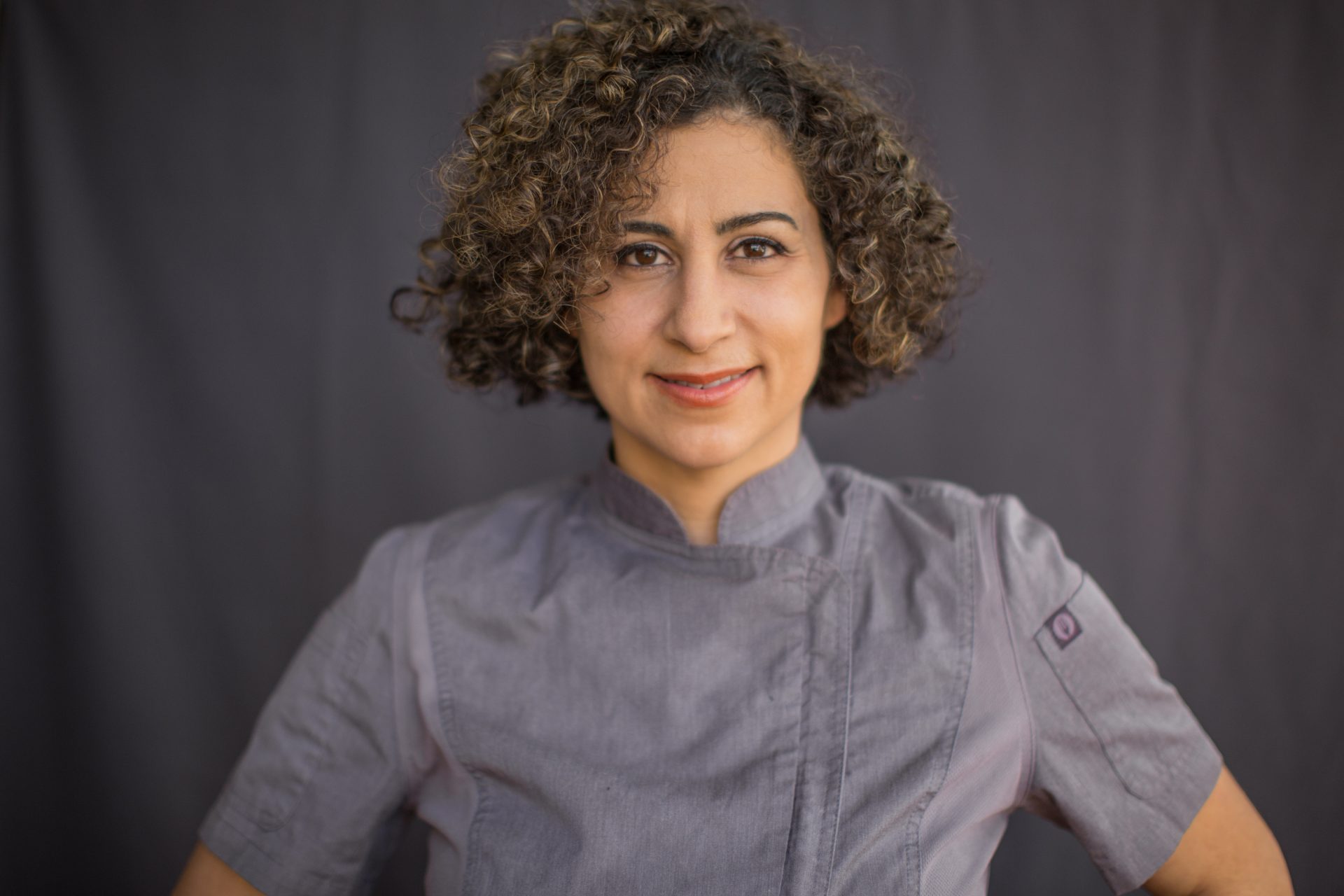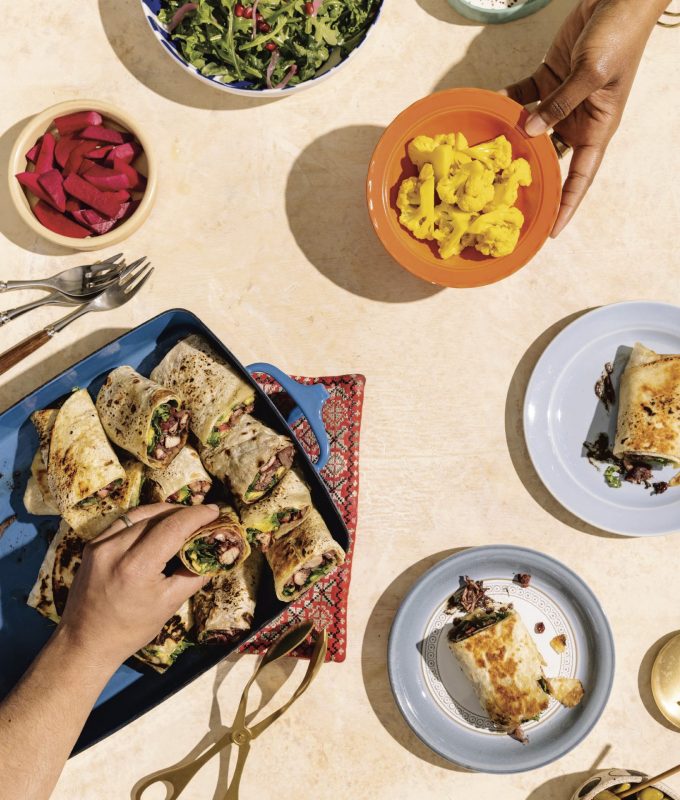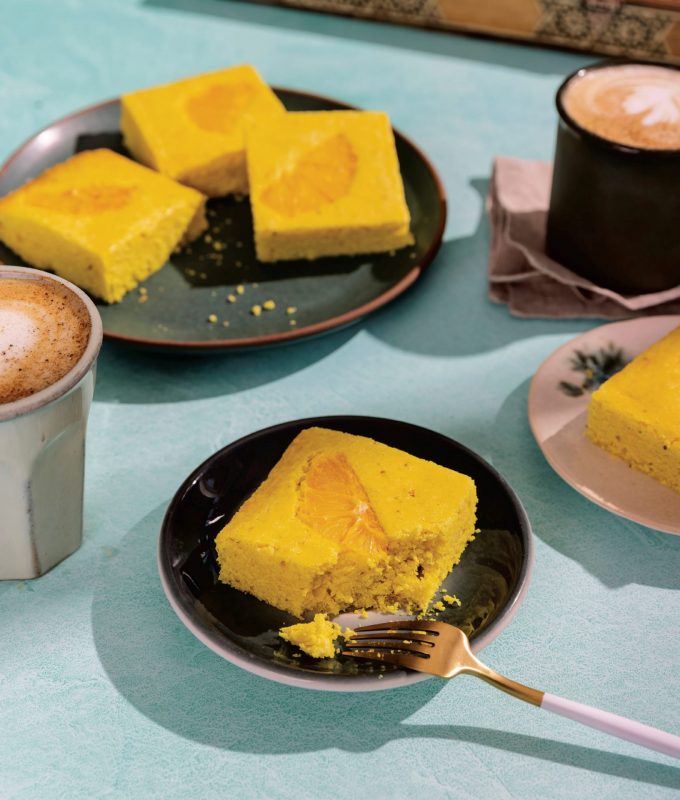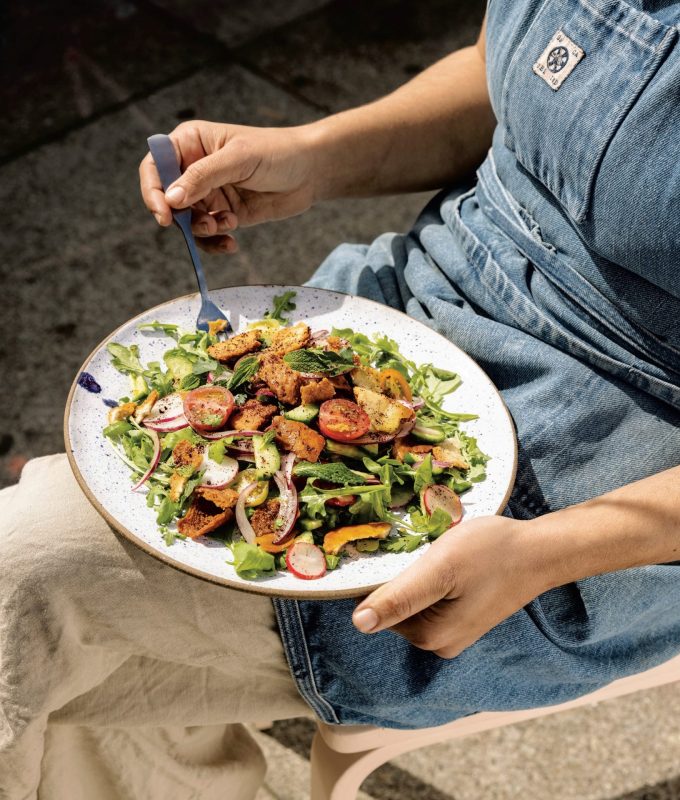Food as Resistance

This article originally appeared in the Fall-Winter 2022/2023 print issue of Quench Magazine.
Chef Reem Assil is reclaiming what it means to be an Arab woman in the west.
“From my very youngest age, I remember being bombarded with imagery of people like me who were either refugees or terrorists,” explains Reem Assil.
For decades, Assil has devoted her professional career to serving underrepresented communities, and giving them a voice. Now, the multiple James Beard-nominated chef (including finalist for outstanding chef), restauranteur, and social justice activist has most recently added cookbook author to her already impressive resumé, paving the way for other Arab and Palestinian chefs to rewrite the narrative. “To be able to create mediums for telling our own stories is super, super important.”
Assil’s Palestinian-Syrian parents met during the Civil War in Beirut, Lebanon, then immigrated to the U.S. in the early 1980s. Born and raised in Waltham, a small — and very white — suburb just outside of Boston, Massachusetts, her parents were scared their first-generation children would lose their cultural identity. “I lived in this weird paradoxical world where, by the weekend, we had potluck dinners with traditional Arab dishes [but] subsisted off macaroni and cheese, singing Yankee Doodle Dandy in school and doing all these very Americana things [during school days]. It was quite confusing, to say the least,” she recalls from her home in Oakland, California. Growing up amidst rampant racism and xenophobia towards Muslims, which only heightened after 9/11, “It was hard to admit you were Arab, let alone Palestinian.” While those fear-based views were far from the truth, Assil still felt afraid: “I wanted it to be different for the generation after me.”
Years later, as she visited Lebanon and Syria with her father, she fell in love with the “magical” street corner bakeries. Despite the political unrest occurring just steps away, they were a place of refuge for locals. But this wasn’t an isolated case: the living, breathing alchemy of bread not only transcends across cultures, but also acts as a bridge. “I felt like the universe was telling me to be a baker,” says the activist. Leaving behind a tiring career in the non-profit sector as a labour and community organiser, Assil enrolled in a baking and pastry program at a local community college in 2010. Following a seven-year stint as a professional baker, she founded Reem’s California in 2017—an Arab bakery of her own with two nationally-acclaimed locations in Oakland and San Francisco.
Like many living in diaspora can understand, even if one is trying to find home, home is an elusive thing. Assil wanted to recreate a snapshot of how she felt in the Arab world within the communities struggling to find a sense of home in California. For her, that is deeply rooted in how Arabs do hospitality. Jokingly describing it as “sweet torture,” Assil tells me Arab hospitality is all about ensuring your guest’s heart, belly, and mind are chockfull as possible—sometimes with very little. Back in the day, that virtue was essential for the survival of traders, but Assil believes modern-day hospitality is also about a sense of belonging. “It’s not just about the food but how you serve it and what conditions you create for that person to feel at ease.”
While other chefs before Assil may have hidden behind a more palatable guise of Mediterranean cuisine (for the American public, that is), “I made a very intentional choice to call my food what it was,” she says. “This is Arab food. This is Palestinian food. This is Syrian food.” And claiming (or reclaiming) her Arab identity and taking ownership of their recipes (including hummus) is a political act of resistance—and a way to showcase their beautiful presence and everyday existence.
With the release of her new cookbook, Arabiyya: Recipes from the Life of an Arab in Diaspora, which proudly translates to ‘Arab woman,’ Assil is here to debunk every preconceived image—or misguided trope—readers may have about Arab women. Loaded cover to cover with more than 100 vibrant recipes, expect fresh, seasonal Californian produce mingling with all the orchestrated rhythms of hospitality, a mosaic of vegetables, the unapologetic bold flavours of slow-cooked meats, and mounds of fresh herbs, as well as a hefty baking section, of course. The book is not only about the recipes but the culture and communities that inform it. “This cookbook is a documentation of my family history. Each chapter is dedicated to a person or people in my family and has [related] themes [spanning from how to host like an Arab and the street corner bakeries with hot-out-of-the-oven mana’eesh to finding her vegetable roots],” she shares.
For Assil, food is much more delicious—and alive—when you can understand the context. For example, her take on Musakhan—Palestine’s iconic sumac-scented chicken dish, topped with caramelised onions and remixed into a wrap—reflects her experience of being Arab in America. “We joke we don’t have a nation-state but we [do] have a national dish,” she says. “There are so few ingredients, but an easy way to connect when I talk about the comfort dishes I grew up eating.” Even though many of us are messy, complicated humans living in multiple identity spaces, food has a way of expressing the various parts that make up that beautiful story—and Arabiyya is a celebration of that.
Much like the ancestors before her, who adapted family recipes through occupation and displacement to new surroundings, the food traditions of Syria and Palestine out west continue to tell a remarkable story of resilience. “This is not a California version,” she says. “I happen to be in California using Californian ingredients, but this is very much Palestinian because the hands that made it is Palestinian, and I come from a lineage of Palestinians. But it’s as much about Oakland—it’s the intersection of all my experiences.”
To Assil’s surprise, her book has touched a broader audience than first anticipated. Travelling down to Texas and Charleston, “White folks are coming up to me and saying, ‘This challenged me and spoke to me,’ so that was eye-opening [to know] the world has changed; people are searching for a different way and want to understand more,” she explains. “I think people have felt the vulnerability, and [they] love the recipes—they’re really working out,” she says with a laugh. “Now I know they’re part of my community: they know my story, and they’ll associate that food with that story. That feels heartening for someone whose whole goal is to build community.”
“If we could build that empathy for people across cultures, we can understand what equity is and what it means. Then we can start to dismantle racism and this misconception that we can have one culture,” says Assil. “Imperialists have been trying that for centuries, and it hasn’t worked, so something has got to give—and I imagine a [multicultural] world [where] everybody is sharing.” Through collaboration, Assil believes our neighbourhoods will be more delicious. Maybe then, we can reverse some of the damage done to people—and the planet. And as a fellow third-culture kid myself, I, for one, am here for it.

Click the link for Reem Assil’s recipe for MUSAKHAN (Sumac-Spiced Chicken Wraps)


